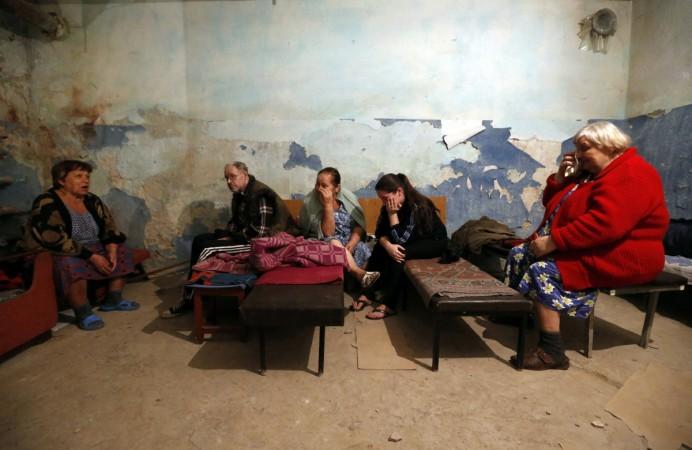
Some 300 Russian trucks filled with 2,000 tons of humanitarian aid are moving towards the border with Ukraine, said Moscow regional authorities. This comes as Russia and Ukraine earlier agreed on a humanitarian mission under the authority of the Red Cross.
Russian media report that some 280 Kamaz trucks carrying food, medication, and drinking water were sent out by Russia's Emergencies Ministry from the regions in Moscow on Tuesday morning.
"The convoy will bring some 2,000 tons of relief aid contributed by Moscow and Moscow Region residents to the people in eastern Ukraine," the administration of the Moscow region told Ria Novasti.
The huge humanitarian cargo includes some 400 tons of grains, 100 tons of sugar, 62 tons of baby food besides 54 tons of medical equipment and medication, the Russian Times reports.
The convoy will also be providing some 12,000 sleeping bags and 69 power generators of various types, the state-owned television channel added.
The humanitarian mission was being carried out without any participation of the Russian military, Kremlin spokesman Dmitry Peskov was quoted as saying earlier. But the activity comes as the Western governments, the European Union and the NATO have been warning Moscow not to use the pretext of humanitarian aid to invade Eastern Ukraine.
Russian President Vladimir Putin told European Commission President Jose Manuel Barroso earlier on Monday that Russia, in cooperation with the Red Cross, was sending a humanitarian convoy to Ukraine.
Military troops, of 20,000 Russian soldiers, were reported to have entered into Ukrainian territory last week - in what they called another 'humanitarian mission' - as the pro-Moscow rebellions appeared to be losing their stronghold.
This triggered strong reactions from the Western governments condemning Moscow for planning to invade Eastern Ukraine using aid as a pretext.
Russia has been hit hard, over the past weeks, as the West and the UN imposed the toughest sanctions since the Cold War era, for its alleged support of the militants. This has triggered reactions from Russia as well, with Kremlin banning supplies of food from most of the European countries.










